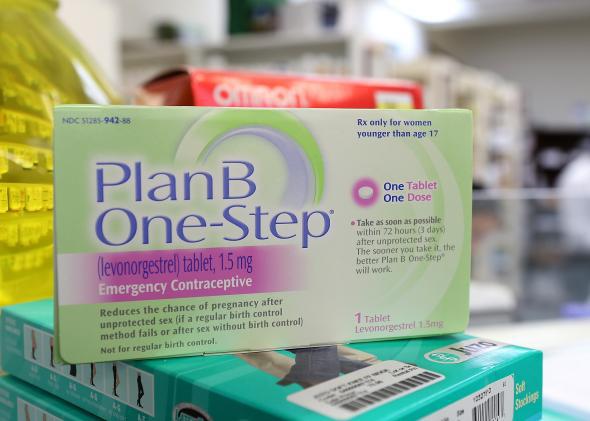Reliable, female-controlled contraception, such as the birth control pill and IUDs, is easier than ever to get. Obamacare mandates that your insurance cover it without a copay, and over-the-counter access to emergency contraception has been steadily improving. (The Food and Drug Administration just ruled in favor of putting generic emergency contraception out on shelves, which will help lower the price.) So it’s no wonder, then, that there’s been an uptick in misinformation and scare-mongering about contraception, and not just from conservatives who claim to believe, against medical evidence, that the pill and the IUD are tantamount to abortion. There’s also been a wave of self-identified feminists attacking hormonal contraception by portraying it as far more dangerous than it is and making it sound like taking the pill gets you only a horror show of every negative side effect under the sun. Now even Ricki Lake is getting involved, making a documentary out of Holly Grigg-Spall’s poorly argued anti-pill scare book, Sweetening the Pill, which Lindsay Beyerstein thoroughly demolished on Slate last year.
In response to all this, OB-GYN Jessica Kiley felt it was necessary to remind readers of Pacific Standard that there are many positive side effects (in addition to the main effect: contraception!) that women experience with the most controversial (which just happen to be the most female-controlled, in a remarkable coincidence) forms of contraception: lighter or nonexistent periods, reduced menstrual pain, reduced acne, and lower rates of ovarian and endometrial cancer. Of course, the contraceptive effects are great, too, as she emphasizes. Women who have effective contraception have healthier babies, because they choose when to get pregnant. They experience better life outcomes, too: “Birth control allows women to achieve education and career goals, benefiting their families and society.”
What Kiley fails to mention, however, is what I, a long-term pill user, can assure you is a wonderful side effect of this kind of contraception: It is great for your sex life. If you’re in a monogamous and tested relationship, it means you can have sex whenever or wherever, without having to go hunting around for your condoms. If you’re still playing the field, it makes sex with a condom more fun and more relaxed, since you’re much less worried about what to do if the condom breaks. Easy access to emergency contraception has got to be a major worry-reducer for condom users, too.
While pretty much everyone can see the benefit of fewer menstrual cramps, “more spontaneous sex” is a side effect that many of critics of the pill do not want to applaud. From the ostensible left, you have Grigg-Spall lamenting hormonal birth control for making women more “sexually available” to men, even though there’s no reason to think women don’t want sex to be available, too. From the right, of course, you have a full meltdown at the mere idea that women might have hassle-free sex, with conservatives using memorable language like “slut” and “prostitute” or warning women that no one is going to marry them if they stick with this plan of ovulating only when they want to. There’s so much social anxiety around the idea of women enjoying sex that even condom companies shy away from talking about it. As long as that anxiety exists, reasonable discussion about the actual risks versus rewards of contraception use will remain elusive.
